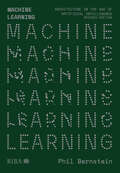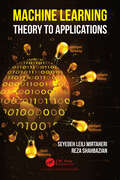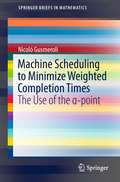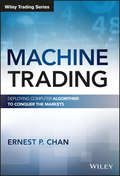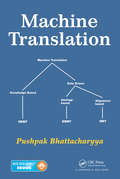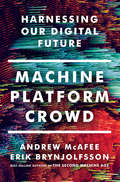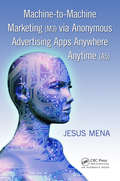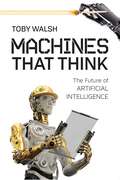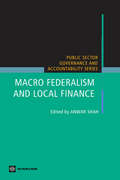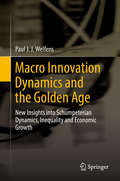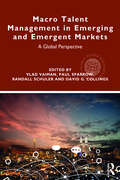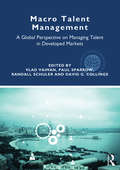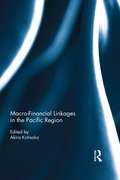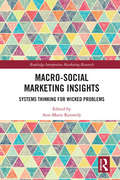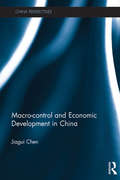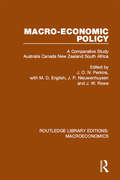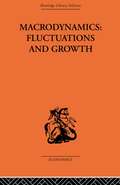- Table View
- List View
Machine Learning: Architecture in the age of Artificial Intelligence
by Phil Bernstein‘The advent of machine learning-based AI systems demands that our industry does not just share toys, but builds a new sandbox in which to play with them.’ - Phil BernsteinThe profession is changing. A new era is rapidly approaching when computers will not merely be instruments for data creation, manipulation and management, but, empowered by artificial intelligence, they will become agents of design themselves. Architects need a strategy for facing the opportunities and threats of these emergent capabilities or risk being left behind.Architecture’s best-known technologist, Phil Bernstein, provides that strategy. Divided into three key sections – Process, Relationships and Results – Machine Learning lays out an approach for anticipating, understanding and managing a world in which computers often augment, but may well also supplant, knowledge workers like architects. Armed with this insight, practices can take full advantage of the new technologies to future-proof their business.Features chapters on: Professionalism Tools and technologies Laws, policy and risk Delivery, means and methods Creating, consuming and curating data Value propositions and business models.
Machine Learning: Theory to Applications
by Seyedeh Leili Mirtaheri Reza ShahbazianThe book reviews core concepts of machine learning (ML) while focusing on modern applications. It is aimed at those who want to advance their understanding of ML by providing technical and practical insights. It does not use complicated mathematics to explain how to benefit from ML algorithms. Unlike the existing literature, this work provides the core concepts with emphasis on fresh ideas and real application scenarios. It starts with the basic concepts of ML and extends the concepts to the different deep learning algorithms. The book provides an introduction and main elements of evaluation tools with Python and walks you through the recent applications of ML in self-driving cars, cognitive decision making, communication networks, security, and signal processing. The concept of generative networks is also presented and focuses on GANs as a tool to improve the performance of existing algorithms. In summary, this book provides a comprehensive technological path from fundamental theories to the categorization of existing algorithms, covers state-of-the-art, practical evaluation tools and methods to empower you to use synthetic data to improve the performance of applications.
Machine Scheduling to Minimize Weighted Completion Times
by Nicoló GusmeroliThis work reviews the most important results regarding the use of the α-point in Scheduling Theory. It provides a number of different LP-relaxations for scheduling problems and seeks to explain their polyhedral consequences. It also explains the concept of the α-point and how the conversion algorithm works, pointing out the relations to the sum of the weighted completion times. Lastly, the book explores the latest techniques used for many scheduling problems with different constraints, such as release dates, precedences, and parallel machines. This reference book is intended for advanced undergraduate and postgraduate students who are interested in scheduling theory. It is also inspiring for researchers wanting to learn about sophisticated techniques and open problems of the field.
Machine Trading: Deploying Computer Algorithms to Conquer the Markets
by Ernest P. ChanDive into algo trading with step-by-step tutorials and expert insight Machine Trading is a practical guide to building your algorithmic trading business. Written by a recognized trader with major institution expertise, this book provides step-by-step instruction on quantitative trading and the latest technologies available even outside the Wall Street sphere. You'll discover the latest platforms that are becoming increasingly easy to use, gain access to new markets, and learn new quantitative strategies that are applicable to stocks, options, futures, currencies, and even bitcoins. The companion website provides downloadable software codes, and you'll learn to design your own proprietary tools using MATLAB. The author's experiences provide deep insight into both the business and human side of systematic trading and money management, and his evolution from proprietary trader to fund manager contains valuable lessons for investors at any level. Algorithmic trading is booming, and the theories, tools, technologies, and the markets themselves are evolving at a rapid pace. This book gets you up to speed, and walks you through the process of developing your own proprietary trading operation using the latest tools. Utilize the newer, easier algorithmic trading platforms Access markets previously unavailable to systematic traders Adopt new strategies for a variety of instruments Gain expert perspective into the human side of trading The strength of algorithmic trading is its versatility. It can be used in any strategy, including market-making, inter-market spreading, arbitrage, or pure speculation; decision-making and implementation can be augmented at any stage, or may operate completely automatically. Traders looking to step up their strategy need look no further than Machine Trading for clear instruction and expert solutions.
Machine Translation
by Pushpak BhattacharyyaThis book compares and contrasts the principles and practices of rule-based machine translation (RBMT), statistical machine translation (SMT), and example-based machine translation (EBMT). Presenting numerous examples, the text introduces language divergence as the fundamental challenge to machine translation, emphasizes and works out word alignment, explores IBM models of machine translation, covers the mathematics of phrase-based SMT, provides complete walk-throughs of the working of interlingua-based and transfer-based RBMT, and analyzes EBMT, showing how translation parts can be extracted and recombined to automatically translate a new input.
Machine, Platform, Crowd: Harnessing Our Digital Future
by Erik Brynjolfsson Andrew McafeeFrom the authors of the best-selling The Second Machine Age, a leader’s guide to success in a rapidly changing economy. We live in strange times. A machine plays the strategy game Go better than any human; upstarts like Apple and Google destroy industry stalwarts such as Nokia; ideas from the crowd are repeatedly more innovative than corporate research labs. MIT’s Andrew McAfee and Erik Brynjolfsson know what it takes to master this digital-powered shift: we must rethink the integration of minds and machines, of products and platforms, and of the core and the crowd. In all three cases, the balance now favors the second element of the pair, with massive implications for how we run our companies and live our lives. In the tradition of agenda-setting classics like Clay Christensen’s The Innovator’s Dilemma, McAfee and Brynjolfsson deliver both a penetrating analysis of a new world and a toolkit for thriving in it. For startups and established businesses, or for anyone interested in what the future holds, Machine, Platform, Crowd is essential reading.
Machine-to-Machine Marketing (M3) via Anonymous Advertising Apps Anywhere Anytime (A5)
by Jesus MenaIn today's wireless environment, marketing is more frequently occurring at the server-to-device level-with that device being anything from a laptop or phone to a TV or car. In this real-time digital marketplace, human attributes such as income, marital status, and age are not the most reliable attributes for modeling consumer behaviors. A more effe
Machines That Think: The Future of Artificial Intelligence
by Toby WalshA scientist who has spent a career developing Artificial Intelligence takes a realistic look at the technological challenges and assesses the likely effect of AI on the future.How will Artificial Intelligence (AI) impact our lives? Toby Walsh, one of the leading AI researchers in the world, takes a critical look at the many ways in which "thinking machines" will change our world.Based on a deep understanding of the technology, Walsh describes where Artificial Intelligence is today, and where it will take us.·Will automation take away most of our jobs? ·Is a "technological singularity" near? ·What is the chance that robots will take over? ·How do we best prepare for this future? The author concludes that, if we plan well, AI could be our greatest legacy, the last invention human beings will ever need to make.
Machines, Bodies and Invisible Hands: Metaphors of Order and Economic Theory in Adam Smith
by Stefano FioriWhat was Adam Smith’s intellectual laboratory? How did his economic theory take shape? Were his metaphors of order only residual and ornamental expressions? This book answers these questions by analyzing the formation of the concepts of market and social order in Adam Smith’s work, by considering various aspects of his approach. It analyzes how metaphors and pre-analytical concepts influenced Smith’s theory. In line with studies that deal with the cognitive role of metaphors in science, this book suggests that in Smith’s work metaphors provided a framework, on which basis the theory subsequently developed. Therefore, as such they were part of that intellectual process which made possible the formation of structured concepts. The content and scope of the book permits a more comprehensive interpretation of Smith’s thought, in which many aspects of his work are taken into consideration in order to explain a crucial problem for Smith: the nature and causes of social and economic order. The book also shows that in general, formation of theories is a complex process that includes pre-analytical views as non-residual parts of inquiry.
Macht und Digitalisierung innerhalb der Supply Chain: Eine Betrachtung von Machtstrukturen unter Einfluss der Digitalisierung und der digitalen Transformation
by Janosch BrinkerIn diesem Buch wird ein Theorieansatz zur Beschreibung der Auswirkungen der Digitalisierung auf die Machtstrukturen innerhalb von Supply Chains erarbeitet. Hierzu nutzt die Forschung einen Design Science Research Ansatz und verknüpft innerhalb dieses qualitative Interviews, einen systematischen Literatur Review und eine Fallstudienanalyse, um die Machtdynamik in einer digitalisierten SCM-Landschaft zu analysieren. Anhand von 15 Experteninterviews und umfassenden Fallstudien entwickelt der Autor einen designtheoretischen Ansatz, der Einblicke in die Art und Weise bietet, wie die Digitalisierung die Machtverteilung, Strategien und Interaktionen innerhalb von Lieferketten beeinflusst, und schließt damit die Forschungslücke in diesem Bereich.Auf dieser Basis wird ein dreistufiges Supply Chain Modell entwickelt, um die Interaktionen zwischen Insidern, Outsidern und dem digitalen Rückgrat der Lieferkette darzustellen. Die Ergebnisse erarbeiten einen Wandelungsprozess in der Vorstellung von Macht für das Supply Chain Management und tragen so zur Weiterentwicklung der Supply-Chain-Management-Theorie in der digitalen Transformation bei. Hierzu beleuchtet die Arbeit die komplexe Beziehung zwischen Machtstrukturen und Digitalisierung innerhalb von Lieferketten.
Macht und Einfluss mit Weber, Einstein, Sophokles & Co.
by James McGrathDas Buch "Macht und Einfluss mit Weber, Einstein, Sophokles & Co." aus der Reihe "Management Short Cuts" versammelt 6 Zitate von Business-Gurus und bekannten Persönlichkeiten. Bei jedem Zitat wird erklärt, was es bedeutet, wie Sie es nutzen können und welche Fragen Sie sich stellen sollten. Kurz, kompakt und auf den Punkt können Sie so schnell die Kernbotschaft erfassen und anwenden. Sie erhalten wertvolle Einblicke und Kenntnisse für Ihren Erfolg!
Macht, Kontrolle und Entscheidungen in Organisationen: Eine Einführung in organisationale Mikro-, Meso- und Makropolitik (Studientexte zur Soziologie)
by Thomas MatysDiese Einführung stellt die grundlegenden organisationstheoretischen Ansätze und Theoriestränge dar, die Macht, Kontrolle und Entscheidungen in und durch Organisationen zum Inhalt haben. Die Wechselwirkungen des handelnden Subjekts innerhalb der Macht-, Kontroll- und Entscheidungsmodi sowie die Entstehung und Definition des Machtbegriffes werden eingehend beschrieben. Durch eine Analyse mikro-, meso- und makropolitischer Ordnungsraster werden arbeits- und organisationssoziologische Diskurse, die innerhalb organisationaler Macht-, Kontroll- und Entscheidungskontexte relevant sind und bis zur „digitalen Transformation“ reichen, aufgezeigt.
Macro Federalism and Local Finance
by Anwar M. ShahThe design of a federal system to deal with growth, stabilization, and regional and local development issues is the primary concern of this volume, edited by Anwar Shah. The book provides analytical tools to address issues arising from globalization, localization, and regional integration. It discusses tax harmonization issues associated with subnational value added tax administration. It provides a framework for fiscal discipline in a federal system. Lessons from international experiences from policies to deal with lagging regions are drawn. The book empirically examines the effect of fiscal decentralization on the overall size of the public sector. Finally, it draws lessons from industrial countries' experiences on local governance. This important new series represents a response to several independent evaluations in recent years that have argued that development practitioners and policy makers dealing with public sector reforms in developing countries and, indeed, anyone with a concern for effective public governance could benefit from a synthesis of newer perspectives on public sector reforms. This series distills current wisdom and presents tools of analysis for improving the efficiency, equity, and efficacy of the public sector. Leading public policy experts and practitioners have contributed to the series.
Macro Innovation Dynamics and the Golden Age
by Paul J. J. WelfensThis book takes a new look at the golden age in neoclassical growth theory and explores in detail sustainability and optimum growth in China, the US and Europe. Innovation, foreign direct investment, trade and growth dynamics are key elements in modern economies - including perspectives on green growth and aspects of the knowledge production function in the context of multinational companies. As such the book considers the role of foreign direct investment in a modified growth model and discusses innovation in an enhanced Mundell-Fleming macro model. Moreover, for the first time it directly links a knowledge production function to the macro production function in a broader context, including real money balances in the production function. It shows - also with empirical relevance - that FDI inward stocks relative to the GDP of host countries, the number of researchers and per capita income are relevant drivers of new knowledge and the stock of knowledge, respectively. This new Schumpeterian theoretical approach lends itself to important policy conclusions for both OECD members and newly industrialized countries.
Macro Socio-economics: From Theory to Activism
by David SciulliContributors to this volume respond to the normative capsule framing economic behaviour that Amitai Etzioni has explored. The text also looks at his works on organisations, public policy, socio-economics and communitarianism.
Macro Talent Management in Emerging and Emergent Markets
by Paul Sparrow Randall Schuler Vlad Vaiman David G. Collings<p><i>Macro Talent Management in Emerging and Emergent Markets</i> is the first book to focus specificially on country-level activities that are aimed at attracting, developing, mobilizing, and retaining top talent for economic success in emerging or emergent markets. The book serves as a guide that orients the reader toward activities that increase their country’s global competitiveness, attractiveness, and economic development through strategic talent management. <p>This book brings together leading experts from around the world to address such issues as cross-border flows of talent, diaspora mobility, knowledge flows, global labour markets, and policies. The book is structured in three parts: Part I covers emerging markets, Part II emergent markets, and Part III pan-national themes such as migration and clusters. <p>Bringing together research from the fields of human resource management, international business, economic geography, comparative international development, and political economy, this is a definitive, comprehensive treatment of the topic aimed at advanced students and practitioners.</p>
Macro Talent Management: A Global Perspective on Managing Talent in Developed Markets (Routledge Global Human Resource Management Series)
by Paul Sparrow Randall Schuler Vlad Vaiman David G. Collings<p><i>Macro Talent Management: A Global Perspective on Managing Talent in Developed Markets</i> is the first book to focus specifically on country-level activities aimed at attracting, mobilizing, developing, and retaining top talent for economic success in developed markets. The book serves as a guide that orients the reader toward activities that increase their country's global competitiveness, attractiveness, and economic development through strategic talent management. <p>This book brings together leading experts from around the world to address such isues as cross-border flows of talent, diaspora mobility, knowledge flows, global labour markets, and policies. Bringing together research from the fields of human resource management, international business, economic geography, comparative international development, and political economy, this is a definitive, comprehensive treatment of the topic aimed at advanced students and practitioners.</p>
Macro-Financial Linkages in the Pacific Region
by Akira KohsakaGrowth perspectives in emerging market economies are increasingly dependent on international capital flows in recent decades because of their influences on business cycles. In fact, volatile international capital flows has been one of the main concerns for the macroeconomic policy authorities. Focusing on emerging economies in the Pacific region, this book reveals how they are different from those in other regions in terms of international macro-financial linkages to the global capital market and domestic financial development,. The book also discusses how these characteristics have interacted with their macroeconomic policy regimes and their macroeconomic performance throughout the two major international financial crises in the past more than two decades. It suggests facts that have strengthened the resilience of these emerging economies in the Pacific region against the global financial crisis along with the intensified intra-regional economic integration through trade and investment. The book also examines their macroeconomic management focusing on monetary policy regimes and suggests that their factual unorthodox policies with exchange rate management and capital controls have contributed to their resilience against the intrinsic volatility of the international capital market and financial flows.
Macro-Social Marketing Insights: Systems Thinking for Wicked Problems (Routledge Interpretive Marketing Research)
by Ann Marie KennedyMacro-social marketing is an approach to solving wicked problems. Wicked problems include obesity, environmental degradation, smoking cessation, fast fashion, gambling, and drug and alcohol abuse. As such, wicked problems are those problems that are so complex and multifaceted, it is difficult to define the exact problem, its contributing factors, and paths to a solution. Increasingly, governments, NGOs, and community groups are seeking to solve these types of problems. In doing so, the issues with pursuing macro-level change are beginning to emerge. Issues stem from the interconnected nature of stakeholders involved with a wicked problem—where one change may create a negative ripple effect of both intended and unintended consequences. Macro-social marketing, then, provides a holistic and systemic approach to both studying and solving wicked problems. Within the chapters of this book, macro-social marketing approaches to analysing and defining wicked problems, to identifying stakeholders and potential ripple effects, and to implementing macro-level change are presented. In this emerging area of academia, the theories, models, and approaches outlined in this book are cutting edge and provide a critical approach from top researchers in the area. Both practical and theoretical aspects are presented as well as caveats on such societal and/or country-wide change. A must-have for social marketing academics and those interested in macro-level change at a practical or theoretical level.
Macro-control and Economic Development in China (China Perspectives)
by Jiagui ChenThis book, together with Economic Development and Reform Deepening in China is a collection of papers written in recent years about maintaining economic growth, managing inflation, the relationship between growth and structural adjustment, control of price growth, maintaining stable economic development, and other relevant aspects of macro-control, economic development, and deepening reform. Chinese government adopts many of the recommendations put forward by the book.
Macro-econometric Analysis on Determinants of Fertility Behavior (SpringerBriefs in Population Studies)
by Hisakazu KatoThe book comprises three chapters, with each chapter assigned various type data such as time series data, cross sectional data and panel data. The purpose of this book is to explore the economic and social determinant factors of fertility. Unlike many previous empirical analyses of fertility and the related demographic events, this research has three characteristics. The first is that the relationship between fertility and labor participation by females is thoroughly considered, with much discussion about the structural change between those factors. The second is that time series analysis such as the Bayesian vector autoregressive (BVAR) model or co-integration concepts is applied to explore the determinant factors of fertility. The third is that the effectiveness of public policies related to improve fertility is confirmed. In recent years, micro-econometric analysis has become popular; however, this book takes another approach from the perspective of macro- or semi-macro-econometrics.
Macro-economic Policy: A Comparative Study, Australia, Canada, New Zealand and South Africa (Routledge Library Editions: Macroeconomics)
by J. O. N. PERKINS, M. D. ENGLISH, J. P. NIEUWENHUYSEN AND J. W. ROWEWhen it was first published in 1972, this was the first book to analyze the experience of Australia, Canada, New Zealand and South Africa in the field of macro-economic policy. The characteristics of this group of countries gives them much in common with both industrialized and emerging economies. Their experience of economic policy-making has, therefore an unusually wide relevance.
MacroMarkets LLC
by Robin Greenwood Luis M. ViceiraMacroMarkets co-founder and CEO Samuel Masucci III is meeting with a strategic partner for his firm. Co-founded with Yale University Professor Robert Shiller, MacroMarkets' main innovation is the "MacroShare," which allows investors to take long or short, levered or unlevered, positions based on the value of any index. Both Shiller and Masucci are hopeful that MacroShares can help investors hedge all kinds of macroeconomic risks, including exposure to residential housing. The firm has 'battle-tested' two products-- one linked to oil, and one linked to housing -- with mixed success, and is evaluating its strategy going forward. Specifically, Masucci wonders whether the MacroShare structure might come to replace the ETF as the predominant technology for index trading.
MacroMarkets LLC
by Robin Greenwood Luis M. ViceiraMacroMarkets co-founder and CEO Samuel Masucci III is meeting with a strategic partner for his firm. Co-founded with Yale University Professor Robert Shiller, MacroMarkets' main innovation is the "MacroShare," which allows investors to take long or short, levered or unlevered, positions based on the value of any index. Both Shiller and Masucci are hopeful that MacroShares can help investors hedge all kinds of macroeconomic risks, including exposure to residential housing. The firm has 'battle-tested' two products-- one linked to oil, and one linked to housing -- with mixed success, and is evaluating its strategy going forward. Specifically, Masucci wonders whether the MacroShare structure might come to replace the ETF as the predominant technology for index trading.
Macrodynamics: A study of the economy in equilibrium and disequilibrium
by Pierre-Yves HéninBuilding from the micro-foundations of economic behaviour to a full survey of macroeconomics, the book examines growth theory and equilibrium and disequilibrium approaches to provide a comprehensive survey of all the rival theoretical approaches that underlie central policy debates. A survey of pre-Keynesian theories of growth, fluctuations and the various short and long cycles and crises is followed by an exposition of Keynesian theory and its subsequent development and of the neo-classical revival. Topics covered include: * Non-clearing markets * Involuntary unemployment * Persistent inflation. As well as full coverage of the English-language literature, Macrodynamics covers important contributions from the new school of French macroeconomists, including Malinvaud, Benassy and Grandmont.
